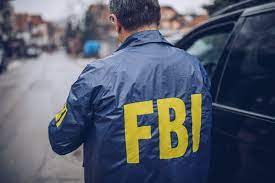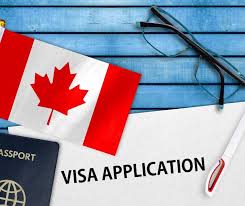Advertisements
Despite the fact that the FBI might work overnight depending on the workload at hand, there are a number of people out there who wish to join this special team of intelligent security officers. However, regardless of what FBI agents do all day, one can still live comfortably and have a family. Although becoming an FBI agent can be challenging if you have been convicted of a felony.
The FBI selection process can take between 6-8 months of underground investigation process depending on the locations the applicant has lived. Consider the FBI phase 1 test one of the most difficult tests ever and that’s why you should pay attention to every detail contained in this post if you want to have a good score.
The FBI has a very strict hiring procedure because of how important its work is, especially for its Special Agents. According to a source, the FBI application acceptance rate is relatively low around 20% of the applicants are accepted.
The application process is multi-step and includes exams and interviews.
See also: Top 12 Non Physical Jobs That Pay Well
Who is the FBI?
FBI stands for Federal Bureau of Investigation, and they maintain a sizable international footprint despite its domestic focus by running 60 Legal Attaché (LEGAT) offices and 15 sub-offices in the American embassy and consulates around the world.
In addition to rarely conducting unilateral operations in the host countries, these foreign offices exist primarily to coordinate with other foreign security services.
Advertisements
The FBI must, therefore, exercise extreme caution when selecting candidates for special agent positions.
The prerequisites listed below must be satisfied before submitting an application to become an agent.
See also: 21 High-Paying Jobs For Introverts That Are Stress-Free
Important tips for answering FBI interview questions correctly
- Always read the question completely.
- Pay close attention to all of the instructions that the exam supervisor gives.
- Additionally, begin when he instructs you to begin and end when he instructs you to stop.
- Make a plan for how to quickly and thoughtfully respond to questions.
- Attempt all questions.
- Comport yourself
- Do not fiddle or stammer.
What are the missions of the FBI?
Following are the roles of the FBI; if you ever have an interview with them, keep these in mind:
- To prevent terrorist attacks against the United States
- Guard the United States against all foreign espionage and intelligence operations.
- Guard the United States against any cyberattacks and technological crimes.
- Fight corruption on all fronts.
- Uphold citizens’ civil rights
- Reduce white-collar crime 6.
- Take action against all serious violent crimes
- Assist international, local, state, and federal partners
- Upgrade technology to help them continue to execute their missions successfully.
The National Bureau of Criminal Identification was established in 1896 and provided agencies all over the nation with data to identify known criminals.
There was a perception that anarchists were a serious threat to America following the assassination of President William McKinley in 1901.
President Theodore Roosevelt wanted more authority to monitor anarchists despite the fact that the Departments of Justice and Labor had been keeping records on them for years.
Answers to FBI Interview Questions
1. Why should we hire you?
Examine the difficulties you’ll face at work in the future.
How will you go above and beyond to complete the toughest tasks?
Talking about your successes from previous jobs is one method to demonstrate your skills.
What did you do to ensure the success of your most recent presentation?
What impact did your research have on a high-level choice or action?
To assist you to highlight successes that relate to the expectations, go over the job description once more.
2. What is Your Greatest Strength?
Consider the factors that have aided your professional advancement.
Prior to this interview, you might have finished your higher-level degrees and worked in law enforcement.
Despite your background, you possess strengths that have enabled you to reach your present position.
Your skills can come in handy in a variety of situations if you have certain strengths.
Your strengths will enable you to interpret conversations and evidence with greater accuracy and to pick up on subtleties that are crucial.
3. When have you above and beyond the call of duty for an individual
As an agent, collaborate with your team to conduct research or an investigation.
Explain how you have volunteered to assist coworkers in the past, and always include instances to support your claims.
4. What is Your Greatest weakness?
It takes some self-awareness to prepare for this question. Concentrate on a flaw that could be a strength or mention something you are doing to fix.
5. How do You Handle Stress and Pressure?
You will need a strategy to manage stress before it spirals out of control because your job may be very demanding.
Talk about your calming strategies.
How do you maintain your attention to detail and care in your work to ensure that it is error-free?
Say that you are aware of the pressures at work and that you have had similar experiences.
Your ability to manage stress effectively will speak well of you.
6. What is the FBI’s Policy on the Use of Deadly Force by Its Special Agents?
The FBI uses lethal force only when necessary, just like law enforcement.
When someone is in danger, it is expected that an FBI agent will warn the offender before taking any action.
Do your research before the interview if you are unsure of the policies.
7. How did you respond to a situation when someone challenged your trustworthiness?
For trust to exist, it must be earned.
It might be irritating when someone questions you by not believing what you say, especially if you have known and trusted that person for some time.
Your reaction to this could hold the key.
Although you might not have been able to stop the mistrust, you can still influence how it turns out.
8. Why do you want a career in the FBI?
When this question is posed to you, explain how the new job fits with your professional objectives and take advantage of the chance to impart your skills.
9. When last did you use your analytical skills to solve a problem?
Your ability to think analytically aids in both your ability to detect details and your ability to solve them.
Describe the situation and how your abilities enabled you to find the solutions to that challenge right away.
10. In five years, where do you see yourself?
This inquiry aims to determine whether you have the ability to adapt and develop. “Questions And Answers For FBI Interviews”
You can explain to them that you intend to develop new talents that will heighten your interest in the FBI’s expansion and that you’re also keen to advance your career by pursuing professional certifications.
Over to you
Whether you were searching for FBI Forensic accountant interview questions, FBI internship interview questions, or FBI interview polygraph questions, we hope that this post was able to give you deep insight into what FBI interview questions look like, and important tips to ace your next interview with the FBI






